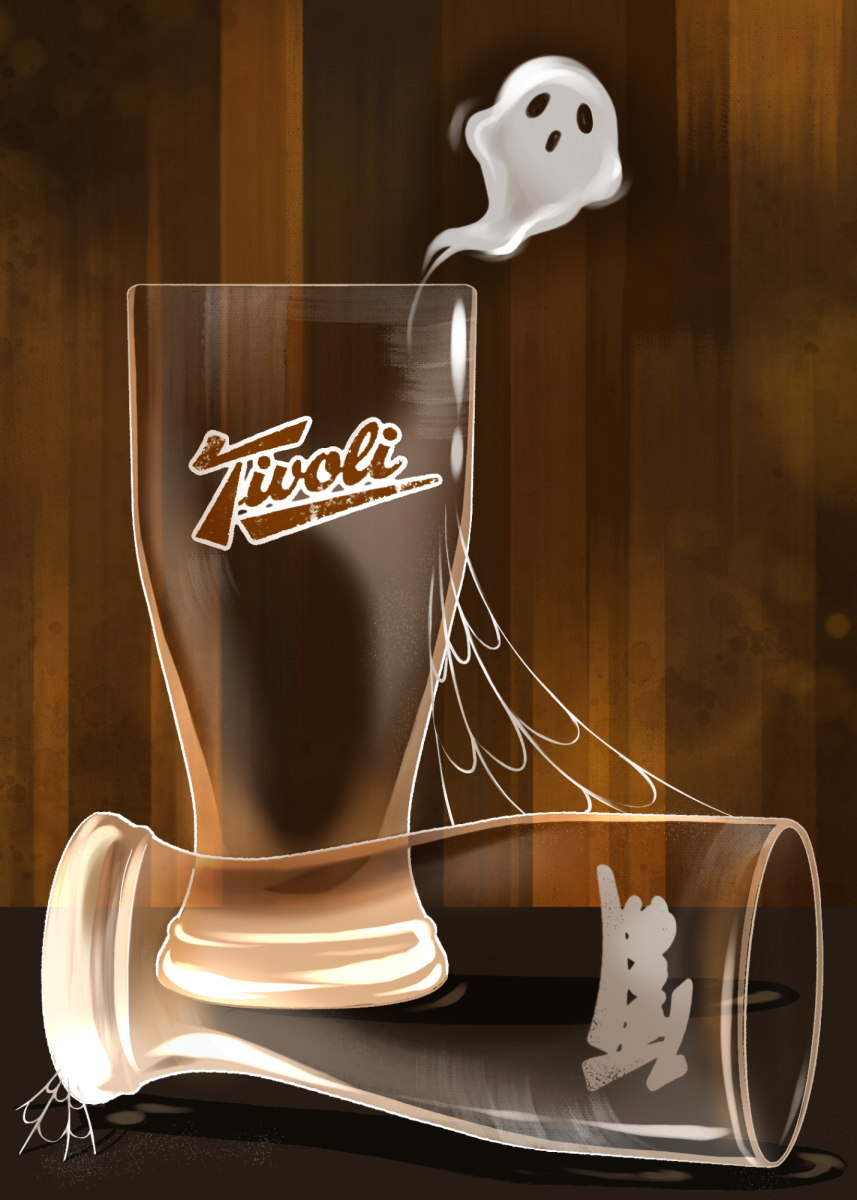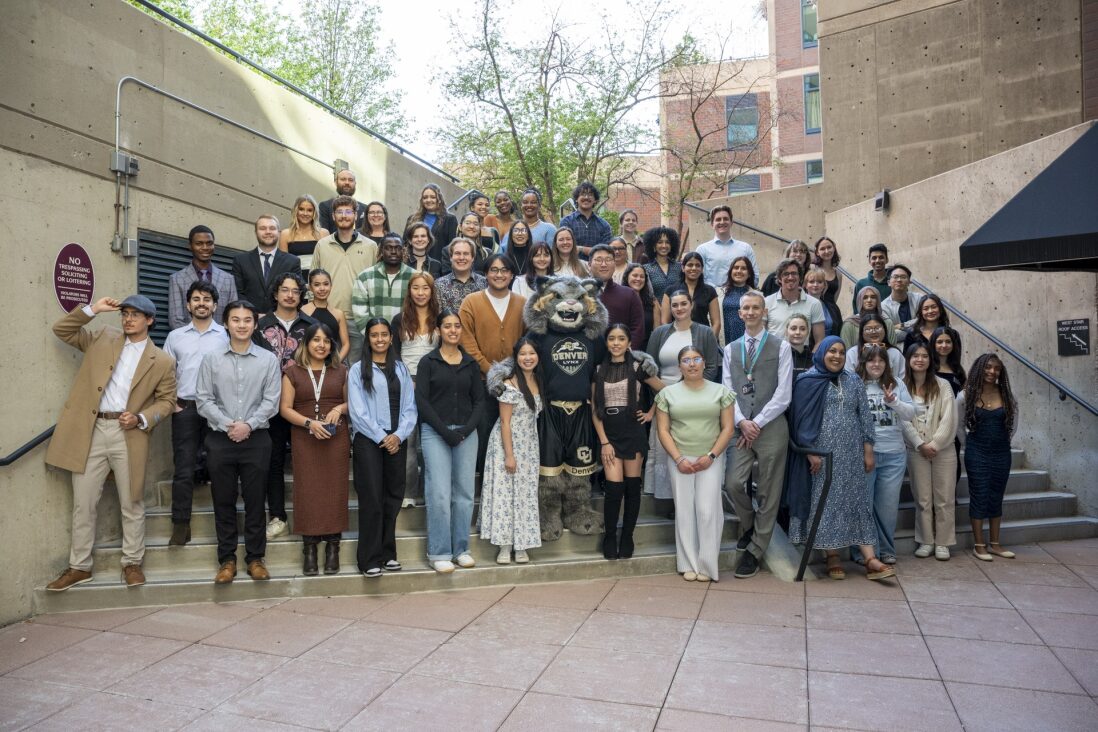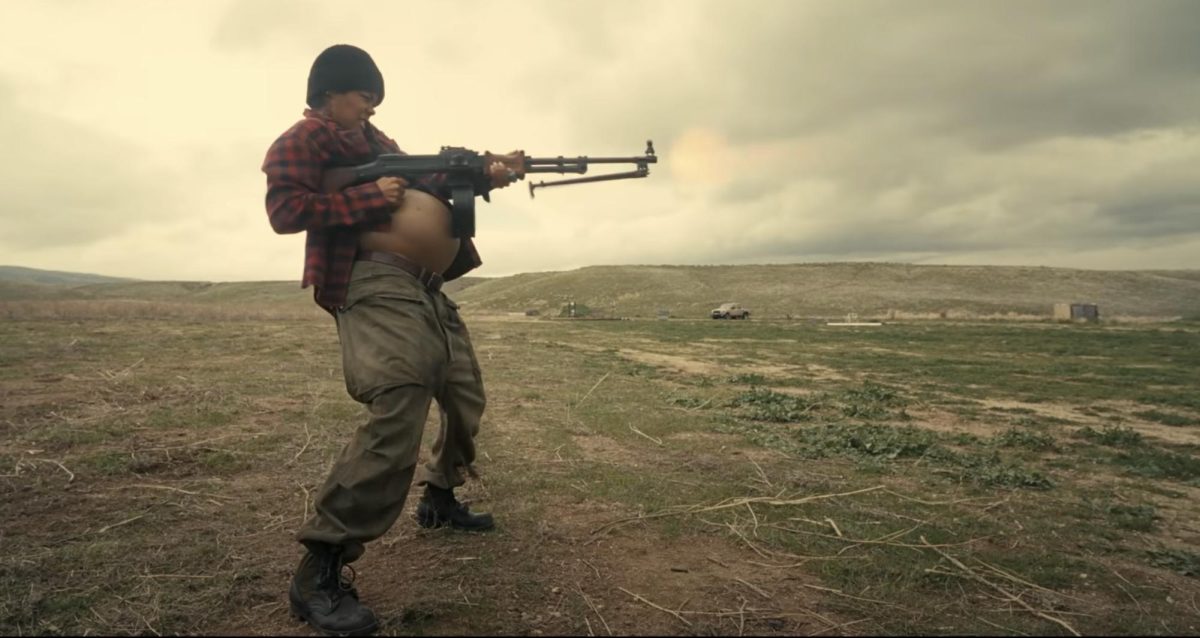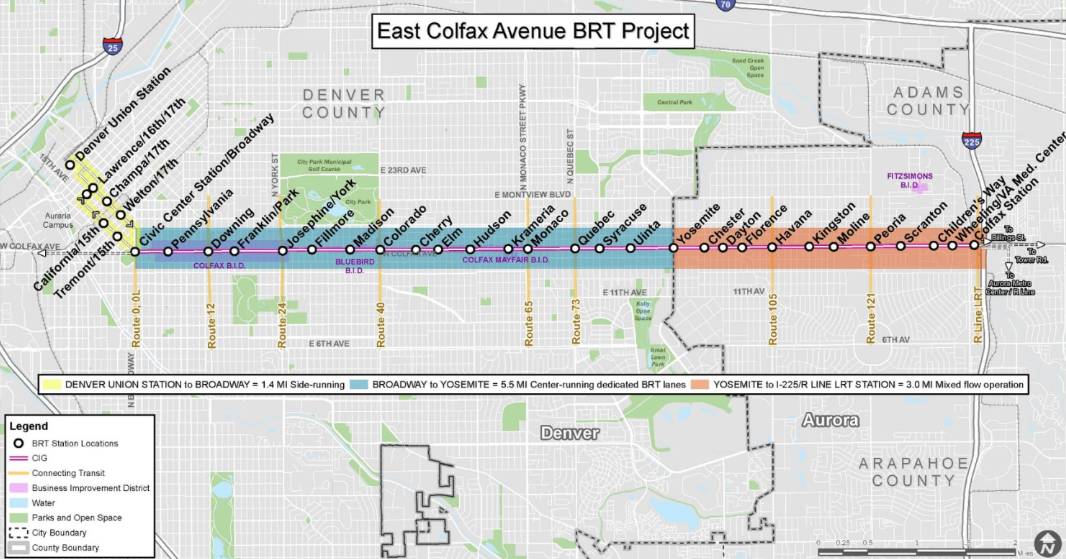Yesterday’s passions had burned down to embers, and a frigid fog had rolled in that morning to douse them for good. Fat pellets of snow fell to the ground, though they hardly looked romantic on West Colfax. It was Saturday, Feb. 15—Valentine’s Day was a year away, but workers at the Alamo Drafthouse in Sloans Lake found a certain kind of love in their solidarity with each other as they prepared to strike for a second day.
Earlier this month, Alamo Drafthouse Cinemas handed down a series of layoffs to employees across the country as a cost-cutting measure by the company’s new owner, Sony. According to the union representing Alamo Drafthouse workers in Colorado—Communications Workers of America (CWA) Local 7777—around 50 Colorado employees lost their jobs in the corporate massacre. In response to the layoffs, the union filed a complaint with the National Labor Relations Board on Feb. 3, but did not announce any further plans at the time.
That changed on Feb. 10, when union members voted unanimously to authorize a strike. Four days later on Feb. 14, union members in Denver and New York City dropped their popcorn scoops and grabbed their picket signs, calling on customers to refund any tickets they had already bought.
Despite the bitter cold, striking on this particular weekend was strategic—the union had denied Alamo Drafthouse the profits of Valentine’s Day, one of the busiest days for movie theaters in the early-year slow season. On the evening of Feb. 14, the line for Sloans Lake Alamo patrons refunding their tickets had stretched out the door.
There was no such line on Feb. 15, but the majority of customers approaching the door on that day turned away in solidarity when picketers informed them of the strike. Other passers-by driving down Colfax honked to show support.
While picketers agreed that Alamo’s slow season usually entails reduced hours, the layoffs had shocked them. According to the union, the company’s recent wave of pink slips is unprecedented —and, more importantly, unnecessary.
“Normally when layoffs happen, we expect there to be an economic necessity for that sort of thing,” said Josh Reitze, a union steward and line cook at Sloans Lake. “[Corporate] stated that there was none.”
Reitze was referring to a statement from Matthew J. Kelley, Alamo’s legal representative in its negotiations with the union.
“This is not a labor cost issue,” said Kelley in the statement. “Unless our employees are going to go out and make some movies that are going to be blockbusters in the next 4-8 weeks, we do not have the need for our current level of staffing.”
For Reitze, who sits on the bargaining committee board, Kelley had essentially admitted that the layoffs were an unnecessary cost-cutting measure. Reitze attributes Alamo’s changing attitude towards workers to its new owner, Sony, which bought the company in June 2024.
“That’s Sony looking to trim a bit of fat right before the beginning of their [quarter] in April,” said Reitze. “They’ve gotten six months to look at the company and see what’s costing them money. They’re making the decision most companies do, which is cut staff.”
At the Sloans Lake location, Alamo took a last-hired-first-fired approach, cutting employees according to their seniority. Alamo employee Tom Collins, who has worked as a server at Alamo for four months, barely escaped the cut. Despite his precarious position as a relatively new hire, Collins felt catalyzed by the layoffs.
“That totally sparked me to realize, hey, these guys who just got let go are in the same position as me, and that’s not fair,” said Collins, who wore his ski gear to keep warm. “We don’t want that happening. Even though I could be working right now, I’d rather be supporting these guys so that we can all come back.”

This spirit of solidarity extended beyond the Alamo Drafthouse itself; other workers on the picket line held jobs as flight attendants, Starbucks baristas, and librarians. At least one supervisor from the Sloans Lake location, Chuck Fisher, had also chosen to stand with workers in the cold.
“I’ve worked with these people for years,” said Fisher, who has worked at with Alamo on and off for six years. “They deserve better pay. They work their ass off. It’s an extremely difficult job.”
Since becoming a supervisor, Fisher has stepped back from the union, and had not known when the strike would begin. They were surprised to see a picket line when they came to work on Feb. 14, but agreed with the union’s position from the start. According to Fisher, different positions in the theater face different challenges.
“Our service bar, our kitchen staff, are only making hourly wages, and they make nothing based off of ticket sales,” said Fisher. “They make nothing based off of how much money corporate is making off of food sales. We have a hot dog right now that’s 18 dollars. The layoffs were not because of financial reasons. It is not because they’re not making money. It is because of corporate greed.”
Fisher and other picketers emphasized that corporate decisions—such as the $18 hot dog pricing—had hurt Alamo customers as well, many of whom pay a monthly fee in order to hold Alamo’s Season Pass. According to Collins, layoffs had resulted in slower ticket sales, more upset customers, and lower tips. Reitze attributed this decline in service quality to a broader decline in communal spaces in American society.
“In our society these days, we are lacking third spaces,” said Reitze. “Alamo Drafthouse is a place that people go as a third space. A place they can go to hang out, get drinks, go see a movie. They like the hospitality, and we want to preserve that. We can’t do that if corporate’s going to cut our staff. We never want to see a day when you’re just going to have a tablet at your station and you never interact with anybody.”
On Feb. 18, CWA Local 777 and Alamo Drafthouse began negotiations over the layoffs, thereby ending the strike in Colorado. Pickets at Alamo locations in New York City are ongoing as of Feb. 21.



















